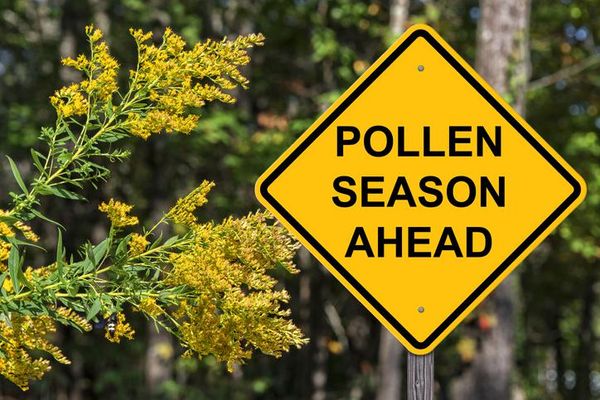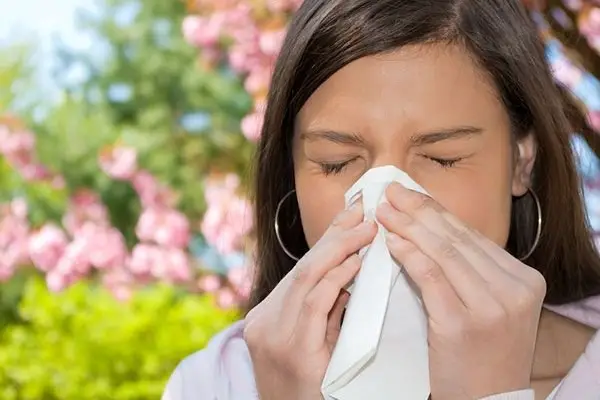While it's impossible to avoid airborne allergens entirely, (even moving to the desert won't necessarily help because you may develop new allergies to local plants) there are numerous things you can do to reduce their devastating effect on your life.
The first thing I tell my patients is to stop smoking, since smoking is a known allergy trigger. Then, implement as many of the following recommendations as you can.
Pollen. Check the pollen counts in the newspaper. Generally, pollen counts are worse in the early morning and on windy days. Take these steps to minimize exposure:
- Have someone else do your yard work while you stay inside with the windows closed and the air conditioning running on high pollen days.
- If you do have to work outside, wear a face mask designed to filter pollen and keep it from reaching your nasal passages.
- Leave all gardening tools, including clothing, outdoors, and shower immediately after working outdoors.
- Plant low-allergenic grasses, trees and shrubs. Generally, flowering plants that rely on insect pollination are best, since their pollen are too large and heavy to become airborne. For a complete list, visit the American Academy of Allergies, Asthma & Immunology Web site: https://www.aaaai.org.
Dust Mites. The best way to reduce exposure to dust mites (microscopic arthropods that reside indoors) is to reduce the dust in your home:
- Consider replacing any wall-to-wall carpeting with wood, laminate, vinyl or tile floors, and covering upholstered furniture with vinyl covers, or buying leather furniture.
- Use a vacuum cleaner equipped with a HEPA filter, which filters tiny particles.
- Dust mites are most prevalent in the bedroom, so attack that room first. Remove blinds (substitute shades, instead), down-filled blankets and feather pillows. Encase your bedding in zippered, plastic, airtight and dust-proof covers, and wash all sheets and bedding weekly in the hottest water available.
Molds. If you're allergic to molds, avoid areas that harbor them including:
- Moist, shady areas outdoors, garden compost piles, greenhouses, mills and grain fields or bins.
- Damp basements and closets, bathrooms, places where fresh food is stored, air conditioners, humidifiers, garbage pails, mattresses, upholstered furniture and old foam rubber pillows.
- Open a window or use a fan after a steamy shower or bath to allow the humidity to escape.
Animals. All pets can cause allergies, even Chihuahuas and so-called "hairless" cats. As many allergy experts say, "The best pet for someone with allergies is a goldfish." But, if you simply can't bear to find another home for your pet, you can:
- Have someone else bathe your pet weekly and brush it outdoors several times a week.
- Use a room air cleaner.
- Wear a face mask while house cleaning.
- Have someone else clean the litter box and make sure it's placed away from air filtrating intake vents in your home if you have forced air heating and/or central air conditioning.
- Wash your hands after touching or handling a pet to avoid spreading the dander.
- Keep pets out of your bedroom, since that's where you spend the most time.
Questions to Ask Your Health Care Professional about Allergies
1. Could an underlying medical condition cause my allergic symptoms?
2. Do I have any medical conditions that might limit my use of over-the-counter medications?
3. What are the side effects of the medications or treatments you're recommending? Will they interact with any other medications I'm taking?
4. How will you monitor my treatment? How long will it take to work?
5. Is my condition potentially dangerous? When should I seek professional medical care after an allergic reaction?
6. Where are some of the unexpected places I might encounter the substance I'm allergic to?
7. Should I be tested for allergy shots?







